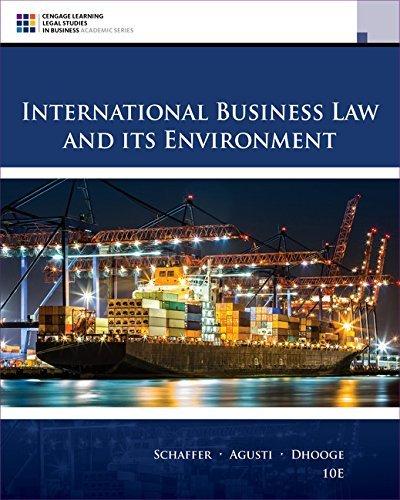The plaintiffs are domestic purchasers of magnesite. The plaintiffs allege, on behalf of a putative class, that
Question:
In a remarkably comprehensive opinion dated April 1, 2010, the District Court engaged in extensive fact-finding and held that the FTAIA deprived it of subject matter jurisdiction. The District Court thoroughly discussed the FTAIA's two exceptions but ultimately determined that the plaintiffs failed to demonstrate that either exception was applicable to this case. The District Court thus granted the defendants' motion and dismissed the plaintiffs' First Amended Complaint.
1. Compare the application of the import trade or commerce exception in Carpet Group with the application in Animal Science. Why did it apply in Carpet Group? Why did it apply in Animal Science?
2. Under the effects test as interpreted in Animal Science, could an effect be "reasonably foreseeable" even if the defendant does not foresee the effect? In a trial, how would you prove that an effect was "reasonably foreseeable"?
Fantastic news! We've Found the answer you've been seeking!
Step by Step Answer:
Related Book For 

International Business Law And Its Environment
ISBN: 9781305972599
10th Edition
Authors: Richard Schaffer, Filiberto Agusti, Lucien J. Dhooge
Question Posted:





